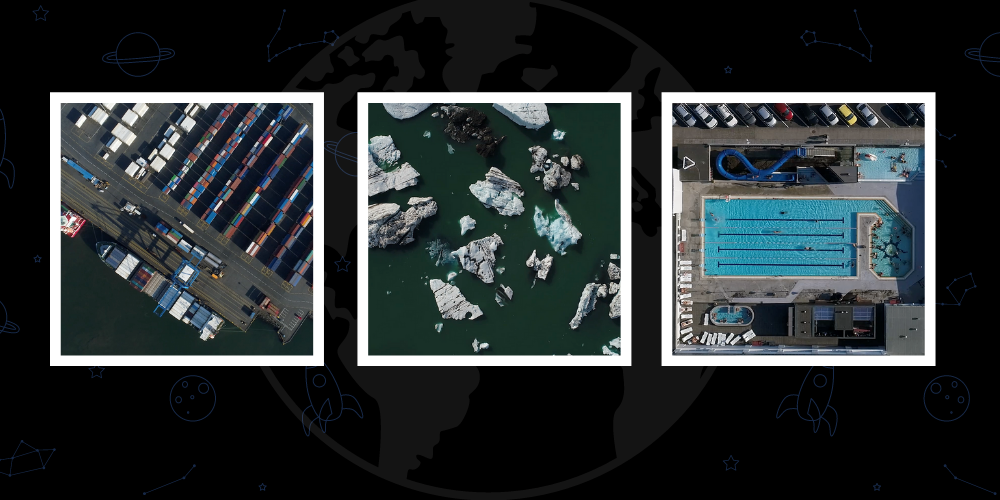This month, the Protect our Planet Movement in association with Planet Classroom have launched Net Zero, a new video and podcast series in which 24 young climate activists from the Protect Our Planet (POP) Movement in association with Planet Classroom ask international thought leaders working on the environment the big questions as to how their nations are progressing towards their 2050 Net Zero pledges.
The Energy and Climate Intelligence Unit is a non-profit organization that supports informed debate on energy and climate change issues in the UK. John Lang manages ECIU’s NetZero Tracker and specializes in communicating climate science and policy to the public. John runs the e-nvironmentalist, a climate communication blog; Consult Climate, a sustainability consultancy; and Kiwis in Climate, a non-partisan group of international New Zealanders involved in climate and related fields.
The Global Search for Education is pleased to welcome John Lang.
John, we’re used to politicians making pledges about Net Zero. What do you think was different about COP26?
Well, it’s different now because we have 90% of the global economy that have accepted they’re at the start line of this Net Zero race. Nowadays, no one is ‘going it alone’ anymore. The direction of travel has been set, and increasingly, more and more politicians are beginning to see the new economic opportunities that are emerging associated with Net Zero.
Another difference is that the growth in Net Zero commitments from countries, corporations and regions suggests that decision-makers now understand the scientific reality: we need to take emissions down from roughly 40 billion tonnes to zero in a matter of decades. Leaders have largely accepted the math of tackling climate change: we have to go to zero.
Are the words from government leaders tracking behind what is actually going on in the global climate crisis?
Not necessarily their words, but certainly in terms of action and implementation, where there’s a huge gap.. The most important aspect of Net Zero is near-term action, immediate policy action. We’re still not seeing that yet. Action must follow words if we’re to get anywhere near halving emissions by 2030 or thereabouts.
But, when leaders adopt a Net Zero target, it is a step in the right direction, it’s an acknowledgement that we have this huge global coordination problem we need to solve, and governments are finally communicating that they want to contribute to the solutions. Now we just need more countries to adopt robust, credible Net Zero targets that are genuine, not greenwash.
How have the collective voices of global youth impacted the climate crisis? As 24 international youth activists take on the task of monitoring the race to Net Zero, what are your top tips for them?
First, activism works. In the real world it’s often what moves the needle. Quiet, elegant solutions from economists and policymakers are no match for activists who can actually change the public narrative, which in turn opens political space for more ambitious policy.
Second, keep in mind that delivering Net Zero is hard; it necessitates juggling other social and economic objectives and ensuring the transition from fossil fuels is fair. So we need a little patience and we need to remember to praise those who set Net Zero targets in the first place. But for those that do or have set targets, especially now that targets are ubiquitous, we need to all collectively keep the pressure on countries, regions and companies so they improve targets — so they draw up plans to reach milestones, they don’t overly rely on offsets, they report progress, they commit to immediate carbon-cutting action.
So the question is: how can we help entities genuinely work towards Net Zero?
Of the 200 nations trying to reach Net Zero, who are you most impressed with so far? Which nations (case studies) do you believe are leading the way so that others can follow?
Not many countries are on track to be perfectly honest. But a couple still stand out.
Sweden has enshrined a target of Net Zero by 2045. It lists interim emission targets in its Climate Policy Framework: 63% lower by 2030 and 75% lower by 2040. These targets cover all greenhouse gases. Short-term policy action has also followed target-setting. In 2019, the country banned sales of fossil fuel powered cars by 2030, and the following year phased out coal power. After achieving its target, Sweden also plans to go to ‘net negative emissions’ – so mopping up more greenhouse gases than it emits. Another area that sets Sweden apart from the Net Zero pack is its transparency around offsetting. It sets a maximum % on the use of offsets, which is what we need to see from other nations.
Another is the UK. Over the last 30 years, the UK has grown its economy by 75% and reduced emissions by 43%. This is largely to do with the country retiring coal-fired electricity, but its policy settings have helped as well. For example, the UK’s Climate Change Act of 2008 set up a climate change commission to advise the government and required 5-year carbon budgets to be set 12 years in advance. These institutional settings, while not guaranteeing Net Zero, make achieving net zero in the long-term much more likely. The UK has a long way to go, don’t get me wrong, but it’s in a better position to deliver on its promises than other nations.
C.M. Rubin and John Lang
Coming Soon – Net Zero, a new video and podcast series in which 24 young climate activists ask international thought leaders working on the environment the big questions as to how their nations are progressing towards their 2050 Net Zero pledges.







Recent Comments